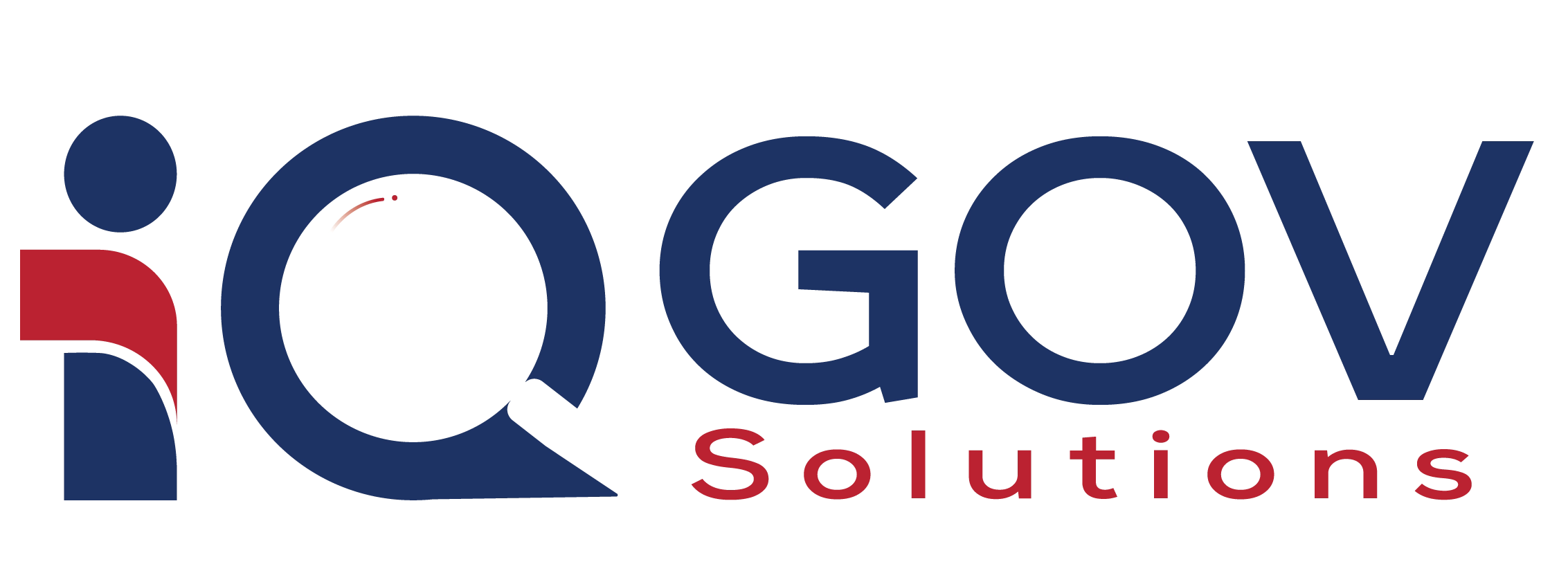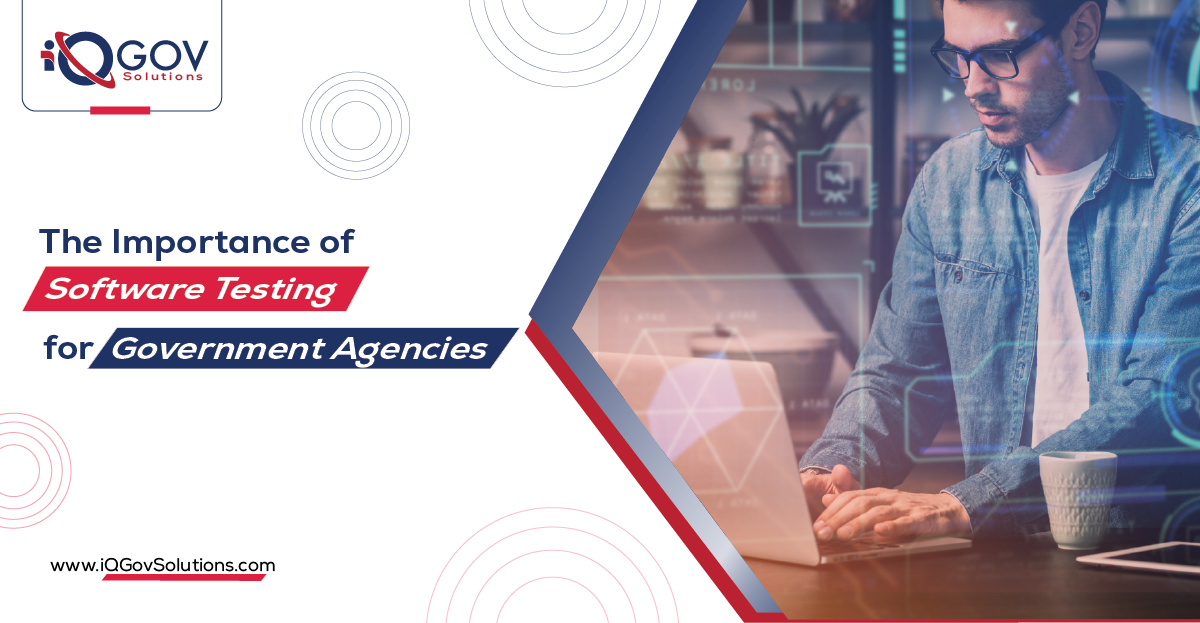Imagine you’re in dire need of crucial social security benefits, attempting to apply online for swift assistance from the government. But as you navigate the website, you encounter an unexpected glitch: perhaps a vital document upload option is missing, an error message freezes your progress, or, worst of all, the entire site crashes. This frustrating ordeal isn’t just an inconvenience; it underscores the pivotal importance of software testing, or quality assurance, in guaranteeing the seamless operation of government websites and online services.
With governments investing heavily in technology—Gartner, Inc. projects IT spending to reach over $589.8 billion in 2023, a 7.6% increase from 2022, the stakes are higher than ever. Citizens rely on these digital platforms for critical services, and any glitches can have tangible repercussions. This is precisely where software testing steps in, a process that ensures the quality and dependability of government software, safeguarding citizens and fostering a smoothly functioning digital society. In this blog, we explore the Importance of software testing for government agencies.
The Importance of Effective Software Testing in the Government Sector
In today’s digital landscape, government agencies rely heavily on software to provide essential services and engage with a broad range of users. This includes citizens, government employees, other departments and agencies, and even contractors. Effective software testing is essential to ensure the reliability, security, and smooth operation of these systems for all stakeholders. Here’s why it matters:
- Enhanced Stakeholder Experience: Testing ensures smooth user interactions and maximizes stakeholder satisfaction by identifying and rectifying defects early in the development process.
- Improved Security and Data Protection: Thorough testing is essential for detecting vulnerabilities and weaknesses in software systems, safeguarding sensitive citizen data from unauthorized access, and ensuring compliance with stringent data protection regulations.
- Increased Efficiency and Cost Savings: Rigorous testing protocols validate software features, minimizing the need for costly post-deployment fixes and enhancements. This enhances operational efficiency and translates into significant cost savings for government agencies.
- Compliance with Regulations: Testing ensures that government software meets various legal requirements and regulatory standards, reducing the risk of non-compliance and potential legal consequences.
- Public Trust and Accountability: Effective software testing is crucial for maintaining public trust in government systems and upholding accountability. Testing reinforces transparency and credibility in government operations by ensuring the reliability, security, and compliance of software applications.
The Challenges of Test Automation for Government Agencies
The common challenges encountered in test automation for government agencies:
- Complex Workflows: Government operations often involve intricate workflows and complex business processes. Identifying and automating test scenarios that cover all these processes can be challenging. It requires thorough analysis and careful design to ensure comprehensive test coverage.
- Skills Gap: Implementing and maintaining test automation requires technical expertise, infrastructure, and resources. However, government agencies may face a shortage of skilled automation engineers, which can hinder the successful implementation and sustainability of test automation initiatives.
- Fluctuating Requirements: Government projects are susceptible to changing requirements due to policy shifts or evolving citizen needs. Maintaining and updating test scripts over an extended period can prove challenging for software systems with long lifecycles. Test automation frameworks need to be adaptable to accommodate these fluctuations efficiently.
- Legacy Systems Integration: Many government agencies rely on legacy systems that may be incompatible with modern automation tools. Integrating test automation with these legacy systems can be technically demanding and time-consuming. It requires careful planning and execution to ensure seamless integration without disrupting critical operations.
- Security and Privacy Concerns: Government agencies handle sensitive data and must adhere to strict security and privacy regulations. Test automation processes must address these concerns by implementing robust security measures to safeguard confidential information throughout the testing lifecycle.
Benefits of Outsourcing Software Testing & Quality Assurance
Outsourcing software testing and quality assurance (QA) can offer significant advantages for government agencies, enhancing efficiency, reducing costs, and ensuring high-quality software solutions. Here are the key benefits:
- Cost-Effectiveness: Outsourcing QA allows government agencies to reduce expenses significantly. QA experts in outsourced locations often have lower salary expectations than in-house teams, leading to cost savings. Additionally, outsourcing eliminates the need to invest in additional office space, equipment, or software licenses, further reducing infrastructure costs.
- Increased Efficiency: Outsourcing software testing and quality assurance to specialized providers empowers government agencies with expert support, focused resources, and round-the-clock coverage, ensuring efficient operations and high-quality outcomes. This strategic partnership enables agencies to optimize internal resources, expedite development cycles, and maintain competitiveness in delivering reliable software solutions.
- Scalability and Flexibility: Outsourcing software testing and quality assurance provides government agencies with flexible resources and specialized expertise, ensuring comprehensive testing and efficient project delivery. Access to diverse skills and quick team assembly streamline operations, allowing agencies to meet project deadlines effectively.
Prioritizing software testing is crucial for government agencies to ensure reliable, secure, and compliant software solutions that meet the needs of citizens, government employees, other departments and agencies, and contractors. With comprehensive QA strategies, agencies can mitigate risks, reduce costs, and enhance operational efficiency. iQ GovSolutions offers expert software testing and quality assurance support, specializing in tailored solutions for government needs. Contact us today to streamline your software testing processes and deliver high-quality solutions that exceed citizen expectations, ensuring effective service delivery for all stakeholders.


